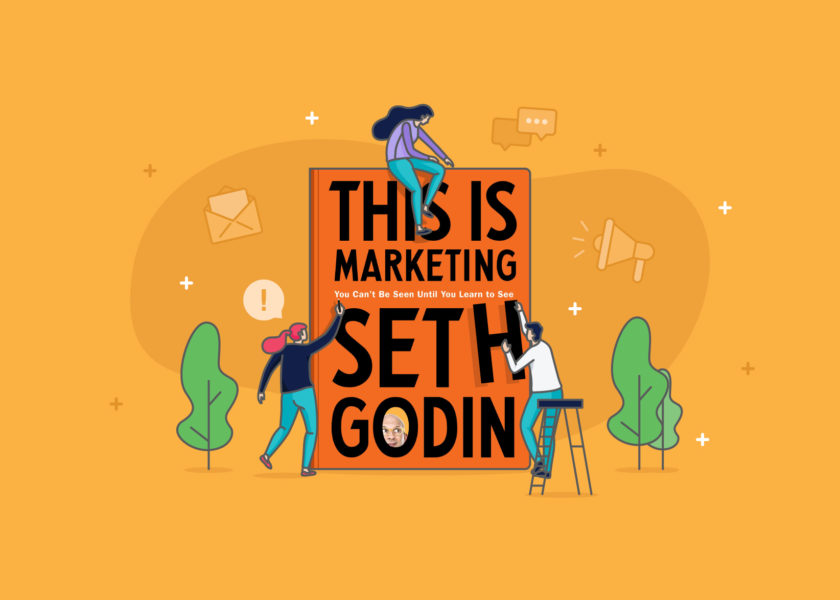Most work comes from referrals.
So why does a law firm’s website matter if work comes predominantly from existing relationships?
New client work comes from your lawyers networks
Marketing managers often tell me that they have trouble explaining the value of a new website internally to their partners.
I’ve heard them say:
- The website is just a recruitment tool.
- My firm treats our website like an online brochure.
- The enquiries that come from our website are ‘tyre-kickers’.
And of course, “All our work comes from referrals.”
We agree.
Research study after research study supports this theory. And anyone who knows about professional services marketing knows this. Just ask any lawyer – very few will tell you something else.
In fact, the large majority of our work at Toro Digital comes from referrals as well. Relationships we built with lawyers and law firm marketers over the past ten years working in firms has provided a strong foundation for our business.
So, what’s with the website?
Services are intangible, so decision-making is difficult
A marketing truth is that services are harder to market because they are intangible. A service is unlike a product that can be seen, touched, tested (and returned). There is a spectrum of course – a restaurant’s business is a mix of tangible products (the food) and intangible services (the waiter’s attentiveness and attitude).
Legal services are about as intangible as they come.
Marketing executive, G Lynn Shostack states in her seminal piece, Breaking Free from Product Marketing, “It is dangerous to take the marketing concepts that apply to products, and try to transfer them to services”
Essentially, the more something is intangible, the less traditional marketing works.
- Traditional marketing – ie. advertising and promotion.
- Services marketing – ie. word-of-mouth and relationships.
But why is this the case? And is this the whole truth?
Like everything in this world, it’s not black and white.
Law firm marketing must provide context and lower risk
I recently shared this example with some young lawyers a few weeks ago when teaching them about the fundamentals of professional services marketing (and why they should care!)
Let’s take two extreme examples of risk. Service #1: your neighbour’s child offering to mow your back lawn for $10; and Service #2: a surgeon conducting life-saving surgery on a loved one.
In the first service, if the child messes up your lawn, it’ll grow back. It isn’t even your front lawn, so no one is likely to see it.
In the second service, if the surgeon messes it up, much more than some landscaping will be lost.
Risk and context are everything when it comes to how a prospect sums you up before making a decision.
If the surgery wasn’t an emergency situation, the family of the loved one would be conducting a LOT of research. They’d consider their options. The surgery cost would often be an indicator of ‘the quality of the surgeon’. They’d meet the surgeon days or weeks before the operation. They’d read about the surgeon online. And they’d make a decision, not solely based on price, but who they thought would be able to ‘get the best result.’ After all, it’s a loved one’s life at stake.
I asked the young lawyers where what they did fit on the spectrum of lawn mowing to surgery. Funnily, most of the responses I got from a number of the sessions were “about in the middle.”
And this is where context comes in to play.
Perhaps what lawyers do isn’t life-saving surgery – but the decisions the ‘buyer’ (your potential client) is making could be extremely risky (to them).
Here are some of the risks they could be taking;
- If the lawyer I choose makes a mistake, will my boss fire me?
- If my lawyer doesn’t get this right, could an employee sue my business – or me?
- Could that law firm have negotiated a far better deal than the one I chose?
Like the surgery, there might be some serious consequences at stake.
No undo button. No second chances.
So what does one do when the stakes are this high? They ask someone they trust for a recommendation.
But, the vital difference between 20 years ago and today is that they can do their own due-diligence online.
4 out of 5 prospective clients will review a law firm’s website or other online presence before picking up the phone. [3 out of those 4 will never call].
It would be safe to assume that pre-digital, they probably did call. Their only form of due diligence was the recommendation they got from their trusted peers.
Now it would be considered negligent to not conduct even the most simple form of online research. This is where it gets really interesting.
Previously, people looking for a new lawyer would ask a trusted source for a recommendation. But a lot of the time, they’d only ask for one lawyer/law firm. It was difficult to tell the difference. Now, they’ll ask for a number of referrals. So even if your firm is getting referred, your lawyers are probably now amongst a large number of lawyers and firms competing for the decision.
As mentioned earlier, product marketing can follow traditional strategies, but services marketing must take a more creative approach. But the higher the risk of the purchase, the greater the due diligence – for both products and services. Just like people do online research for large purchases like home loans or their next car, they’re researching their lawyers and law firms.
Why?
Because they can.





